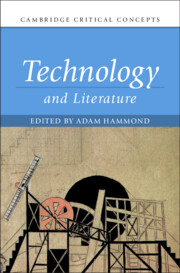Chapter 20 - Visualization
from Part III - Applications
Published online by Cambridge University Press: 30 November 2023
Summary
This chapter explores the interpretive possibilities raised by computational visualizations of digitized literature and literary data. Taking Franco Moretti’s Maps, Graphs and Trees (2007) as a starting point, it considers what new insights these techniques of visualization, seldom employed in the humanities, can convey. Carter speaks with leading practitioners in the field to unpack the ways in which new techniques in digital data visualization are allowing scholars “to perform conventional work in new ways.” Applying these techniques to literary data for which they are not designed, however, also reveals a productive push and pull: as one of Carter’s interview subjects, Alex Christie, puts is, “We’re reading the literature on the technology, but we’re also seeing where the literature we’re trying to model pushes against the edges of the technical frameworks we have in hand.”
Information
- Type
- Chapter
- Information
- Technology and Literature , pp. 377 - 395Publisher: Cambridge University PressPrint publication year: 2023
